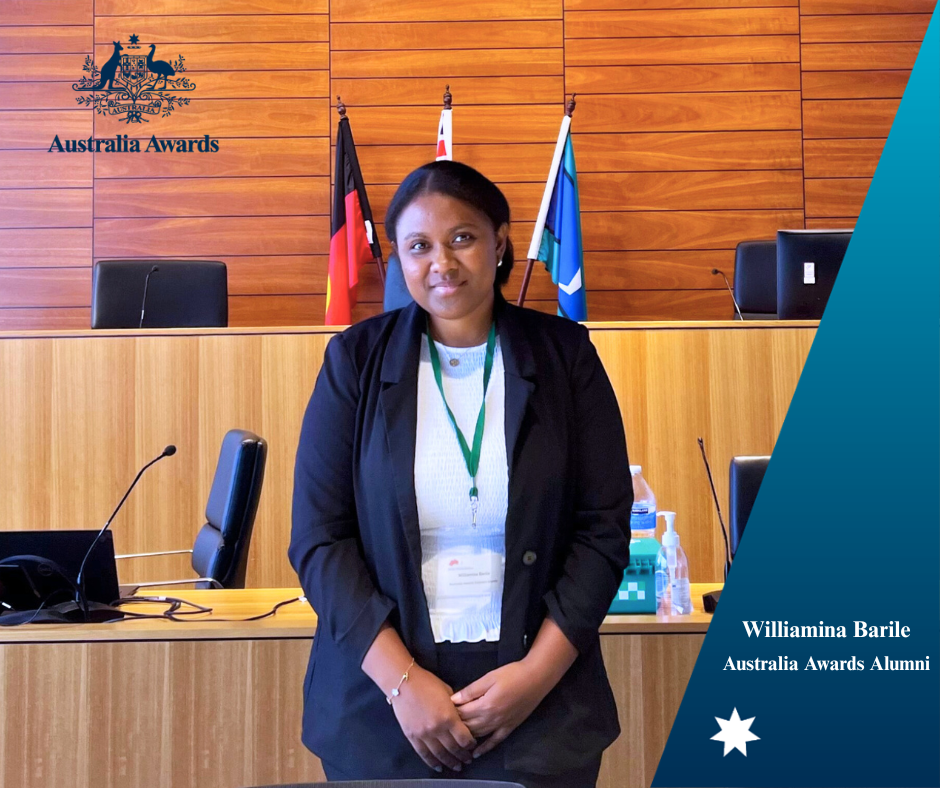
Williamina Barile, an Australia Awards alumna with a Bachelor of Laws from Monash University, has returned to the Solomon Islands from an international law conference with a renewed commitment to championing Pacific perspectives in global legal discussions.
Funded by the Australian Government through Australia Awards, Williamina recently participated in the 32nd Australian and New Zealand Society of International Law (ANZSIL) Conference in Australia.
The event brought together leading international law scholars, practitioners, and policymakers to explore pressing global challenges.
For Williamina, the conference was more than an academic gathering—it was a platform to connect the Solomon Islands’ unique legal and cultural realities with international debates.
One key theme she explored was the concept of “silence” in international law—how the absence of explicit provisions in treaties can have significant implications. “Silence is often mistaken as neutrality,” she explained.
“In reality, it can reflect structural power imbalances, where dominant voices shape agreements while marginalised perspectives, such as those from the Pacific, are left out.”
She pointed to the High Seas Treaty’s lack of regulations on artificial intelligence in marine systems as a potential example, warning that such regulatory gaps could exacerbate existing inequalities between developed and developing nations.
Another significant takeaway was the need for more inclusive approaches to climate justice, particularly for small island states.
The conference shed light on the gap in regulating greenhouse gas (GHG) emissions from small, non-commercial sea vessels—an issue Williamina believes is critical for Solomon Islands.
While large fishing vessels fall under international maritime regulations, smaller community fishing boats remain outside formal laws governing emissions.
“As people of the sea, our livelihoods are tied to fishing. Modernisation has brought outboard motor engines, but with that comes the responsibility to address GHG emissions,” she said.
Reflecting on her time at ANZSIL, Williamina said the experience reinforced the importance of Pacific voices in shaping global legal frameworks.
She now plans to advocate for domestic regulations that not only protect the environment but also safeguard traditional fishing practices, ensuring coastal communities are meaningfully consulted and supported in transitioning to cleaner technologies.
“We must read proposed treaties carefully, think critically, and ensure our national interests are protected before we commit,” she said.
